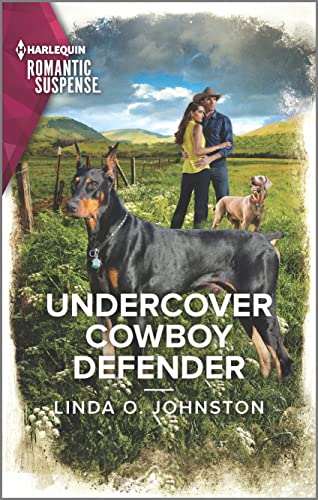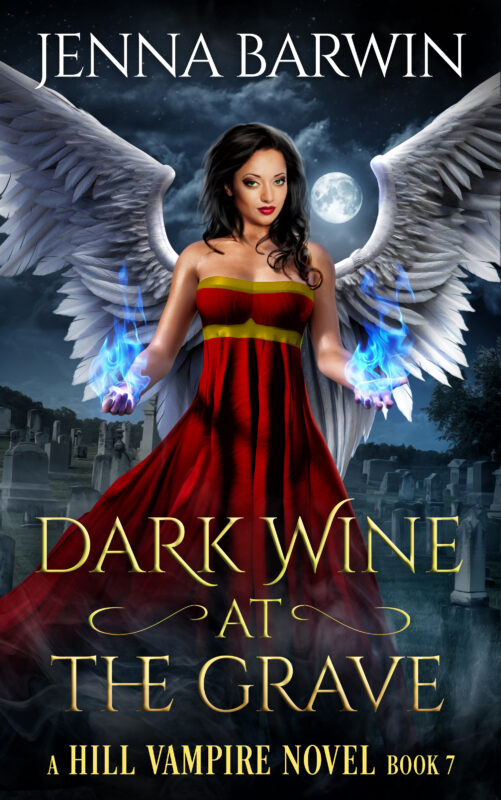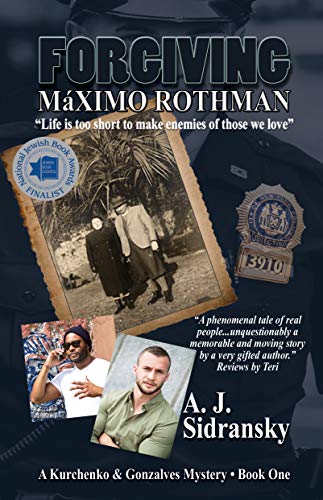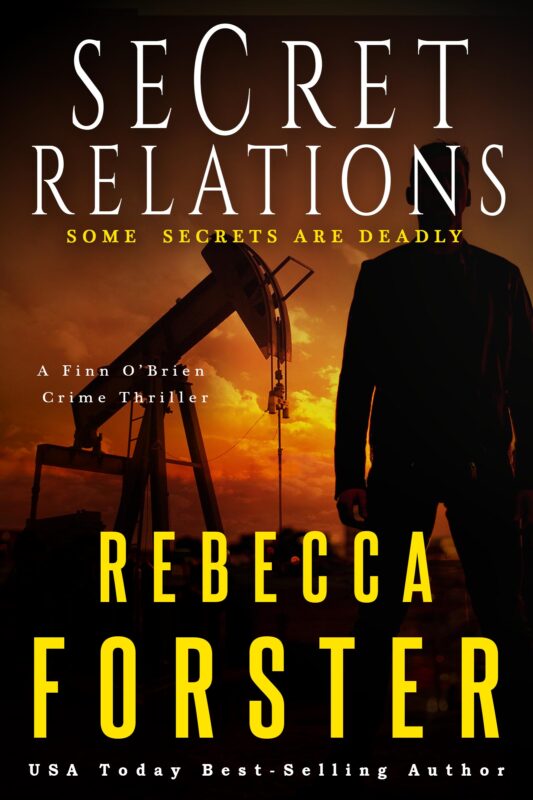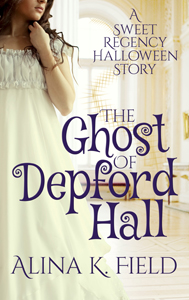Jina Bacarr June Featured Author
June 1, 2021 by Jina Bacarr in category Apples & Oranges by Marianne H. Donley, Featured Author of the Month
About Jina Bacarr

I discovered early on that I inherited the gift of the gab from my large Irish family when I penned a story about a princess who ran away to Paris with her pet turtle Lulu. I was twelve. I grew up listening to their wild, outlandish tales and it was those early years of storytelling that led to my love of history and traveling. I enjoy writing to classical music with a hot cup of java by my side. I adore dark chocolate truffles, vintage anything, the smell of bread baking and rainy days in museums. I’ve always loved walking through history—from Pompeii to Verdun to Old Paris. The voices of the past speak to me through carriages with cracked leather seats, stiff ivory-colored crinolines, and worn satin slippers. I’ve always wondered what it was like to walk in those slippers when they were new.
You can follow Jina on social media:
Facebook
Twitter
Instagram
Pinterest
Goodreads
Bookbub
Jina also has a column here on the 11th of every month: Jina’s Book Chat.
A Few of Jina’s Books

I discovered early on that I inherited the gift of the gab from my large Irish family when I penned a story about a princess who ran away to Paris with her pet turtle Lulu. I was twelve. I grew up listening to their wild, outlandish tales and it was those early years of storytelling that led to my love of history and traveling.
I enjoy writing to classical music with a hot cup of java by my side. I adore dark chocolate truffles, vintage anything, the smell of bread baking and rainy days in museums. I’ve always loved walking through history—from Pompeii to Verdun to Old Paris.
The voices of the past speak to me through carriages with cracked leather seats, stiff ivory-colored crinolines, and worn satin slippers. I’ve always wondered what it was like to walk in those slippers when they were new.
Making Your Story Believable by Kat Martin
May 29, 2021 by marianne h donley in category Apples & Oranges by Marianne H. Donley, Guest Posts tagged as intrigue, Kat Martin, new release, romance, romantic suspense, Suspense, woman's fiction
Over the years, I’ve found one of the best ways to make your story believable is to use real places to locate the action and real names of restaurants and streets. Actually going there, of course, is the best way to make that happen.
In my new novella, COME MIDNIGHT, Breanna Winters, seated on an airliner next to a good-looking man in an expensive suit, finds herself kidnapped by Honduran terrorists. She doesn’t expect Derek Stiles, a corporate executive, to put his life at risk by volunteering to go along when Bree is dragged from the plane and marched into the jungle.
Unfortunately, I have never been to the jungle in Honduras or any jungle for that matter, aside from a brief visit to a tropical rain forest in Brazil and a stop in Belize.
So for this story, I didn’t go to Honduras, but I did do extensive research, and it wasn’t the first time. Beginning with with an old historical, SAVANNAH HEAT, set in the Yucatan Peninsula of Mexico and more recently, THE CONSPIRACY, which travels from the Caribbean to Columbia, I’ve learned a lot about life in the jungle—and it is far from easy.
In the novella, the good news is Derek Stiles is a former Navy fighter pilot with extensive survival training who has spent time in the jungle before. Still, it’s soon clear they’ll need to depend on each other if they’re going to survive.
I hope you will give COME MIDNIGHT a try and that you will look for Derek again in my full-length novel, THE PERFECT MURDER, out June 22nd, the last book in my Maximum Security Series
Till next time, all best wishes and happy reading, Kat

New York Times bestselling author Kat Martin is a graduate of the University of California at Santa Barbara where she majored in Anthropology and also studied History. Currently residing in Missoula, Montana with her Western-author husband, L. J. Martin, Kat has written sixty-five Historical and Contemporary Romantic Suspense novels. More than sixteen million copies of her books are in print and she has been published in twenty foreign countries. Kat is currently at work on her next Romantic Suspense.

Excerpt
Come Midnight
Kat Martin
The sound of a baby’s high-pitched, incessant crying put his teeth on edge. Derek Stiles forced himself to relax as he settled back in his wide business class seat. The airplane engines hummed outside the window, dulling the noise a little, but the crying only grew louder.
Derek silently cursed. His trip to Colombia had already gotten off to a rocky start when a meeting in the Houston office of Garrett Resources, where he worked as VP of Mergers and Acquisitions, ran overtime and he’d missed his non-stop flight. Now he’d be landing in El Salvador, laying over a couple of hours before changing planes and continuing on to Bogota, not getting to his hotel until well after dark.
He pulled out his laptop and set it on the fold-down table in front of him. He usually worked on a flight. He always had plenty to do, but he’d been staying up late every night so he also needed some sleep. It was important to be at the top of his game first thing in the morning.
The baby’s cries grew louder and his nerves revved up. He hadn’t really noticed the woman sitting in the seat beside him until she stood up and turned toward mother and child in the row behind him.
She jangled her car keys over the back of the seat and smiled. “Look, baby. Look at these. I bet you’d like to play with these, wouldn’t you?” The baby’s crying slowed, turned to whimpers, then sniffles, then stopped altogether. Glancing over his shoulder, Derek watched a little girl bundled in pink, maybe a year old, reach up for the car keys.
“I never thought of that,” the mother said, sounding desperate and making him feel guilty. He didn’t have kids but he could imagine how tough it would be to take a child on an international flight.
The mom, a black-haired woman in her mid-twenties, took out her own set of keys and held them up, but the baby ignored them, fascinated by the glittering heart on the end of the other keychain dangling in front of her.
“I hate to ask you this,” the mother said, “but is it all right if Sophie plays with your keys for a while?”
“Absolutely,” his seatmate said. She was pretty, he realized, with long blond hair and big blue eyes. A little above average height, slender but curvy in all the right places. “Once we’re in the air,” she continued, “if you want me to hold her, give you a little break, I’d be happy to.”
The mother’s smile held relief mixed with gratitude. “I might just take you up on that. My name is Carmen, by the way.”
“Breanna.” Her smile went even brighter and Derek felt an unexpected kick. He was usually able to leave his libido behind when he was away on business.
“You have a darling baby,” Breanna said.
Carmen smiled. “Thank you.”
The flight attendant urged Breanna to sit back down so the flight could get underway, and the engines roared, preparing for take-off.
“So I guess you’re a mom,” Derek heard himself saying, though he made it a habit not to talk on a flight. He always had too much to do.
Breanna shifted toward him. “I’d love to have children someday, but I’m not a mother yet. I work with kids so I know a few tricks.”
“What kind of work do you do?”
“I’m with a non-profit called Shelter the Children. Abrego Los Ninos in Spanish. We support an orphanage in a little village outside San Salvador. That’s where I’m headed.”
He smiled and held out a hand. “Derek Stiles. I know your name is Breanna.”
“Yes. Everyone just calls me Bree.”
They were an hour out of San Salvador International Airport when Derek noticed a commotion at the rear of the cabin.
Then the curtain behind the business class section jerked open and a lean, black-haired man stood in the aisle. Derek’s blood ran cold when he noticed the assault rifle strapped across the intruder’s chest.
Pre-order Come Midnight
May Featured Author: Neetu Malik
May 28, 2021 by Neetu Malik in category Featured Author of the Month tagged as May Featured Author of the Month, Neetu Malik, Poet's Day, poetry

Neetu Malik’s poetry is an expression of life’s rhythms and the beat of the human spirit. She draws upon diverse multicultural experiences and observations across three continents in which she has lived. She has contributed to The Australia Times Poetry Magazine, October Hill Magazine, Prachya Review, among others. Her poems have appeared in The Poetic Bond Anthology V and VI published by Willowdown Books, UK, NY Literary Magazine’s Tears Anthology and Poetic Imagination Anthology (Canada).
Her poem, “Soaring Flames”, was awarded First-Place by the NY Literary Magazine (2017). She has also been nominated for the Pushcart Prize, 2019 for her poem “Sacred Figs” published by Kallisto Gaia Press in their Ocotillo Review in May, 2018.
Neetu lives in Pennsylvania, USA.
You can find Neetu’s poetry in these volumes.
Hover on the cover for buy links. Click on the cover for more information.
0 0 Read more
Spotlight On Terri Osburn
May 27, 2021 by marianne h donley in category Apples & Oranges by Marianne H. Donley, Spotlight tagged as new release, Not You Again, romantic comedy, Terri Osburn, The Not Series

Terri Osburn writes contemporary romance with heart, hope, and lots of humor. After landing on the bestseller lists with her Anchor Island Series, she moved on to the Ardent Springs series, which earned her a Book Buyers Best award in 2016. Terri’s work has been translated into five languages, and has sold more than 1.5 million copies worldwide. She resides in middle Tennessee with four frisky felines, and two high-maintenance terrier mixes. Learn more about this international bestseller and her books at www.terriosburn.com. Or check out her Facebook page at https://www.facebook.com/TerriOsburnAuthor.
Terri’s Newest Release
Not You Again
Four blind dates in five days. I can’t believe I agreed to this.

Actually, I can. That’s what I do. I agree to things I don’t want to do to make other people happy. In this case, my four best friends. They’re worried about me and if going on a few dates will make them happy, then I’ll do it. How bad could they be?
I probably shouldn’t have asked that.
I’m starting to seriously wonder if my friends know me at all. Each pick is worse than the last, and none of them compare to my former fiancé. But then I guess maybe that’s the point. Someone new to help me forget the old.
To help me move on.
Except I don’t need a man to prove that I’ve moved on. Why can’t my friends understand that? And why does the same beautiful stranger keep saving me from these awful encounters? The universe seems to be throwing him into my path, and the more time I spend with him the more I wish that he was one of the dates.
There’s one more date left and I can’t help but wonder if he’ll pop up again. How many chance encounters can two people have? Pittsburgh is a big city so the chances are slim.
But what if…?
0 0 Read more
Sing to Me of Rain Book Tour and Giveaway
May 25, 2021 by marianne h donley in category Apples & Oranges by Marianne H. Donley, Rabt Book Tours tagged as E.B.Dawson, excerpt, fantasy, middle-grade fiction, new release
Date Published: 5/22/21
An innocent naiad. A wounded boy. An adventure that will change their lives forever.
Plip is a naiad of the Great Waterfall, destined to one day sing the songs that send rain out into the world.
Akino isn’t destined for anything but trouble. His father long gone, his mother working on a plantation far away, he doesn’t really belong in the village below the Waterfall. And the villagers don’t let him forget it.
When Akino convinces Plip to travel down the mountain with him, for his own selfish purposes, he launches them into a world more dangerous than either of them could imagine. A world where people are not always what they seem and the rain does not fall evenly across the land.
About the Author
E.B. Dawson was born out of time. Raised in the remote regions of a developing nation, traveling to America was as good as traveling thirty years into the future. Now she writes science fiction and fantasy to make sense of her unusual perspectives on life. Her stories acknowledge darkness, but empower and encourage people to keep on fighting, no matter how difficult their circumstances may be. She currently lives in Idaho with her family and her cat Maximus.
Contact Links
Purchase Links
A Rafflecopter Giveaway
Sing to Me of Rain
by E.B. Dawson
Captured
Plip shook herself and looked about tentatively. Out the opening of the globe, the caravan of kempelas strode on tirelessly over an endless sea of yellow sand. The bright blue sky hung low and thick all about them, almost tangible. Plip had the sensation for a moment that they were actually walking along the bottom of a great river, surrounded not by sky, but water.
Strange gray outcroppings began to emerge out of the blue. Porous rock which had been carved by the wind into sharp, jagged formations, like the teeth of some great monster.
But the illusion of water only reminded her how very far she was from the clear streams of the Mountain. She turned her attention to the orange sphere which housed her.
It seemed to be made of thick skin, stretched taut over a strong wooden frame. All about her were sacks of spices, piles of soft carpets, and various objects of fine metal, plus a plethora of items she could not identify. But just to her right was a cage with a very frightened looking bird inside. He was rather small and black, with a tuft of brilliant blue on his breast and matching blue rings around his eyes.
He kept tilting his head back and forth as he watched Plip and hopping left and right every few seconds.
“Poor thing. You’re as frightened as I am.”
The bird shrieked in alarm. His feathers puffed out all around his head and breast, forming a great black oval and revealing a larger stripe of bright blue. He shuffled back and forth in a funny little dance. His head seemed to have disappeared entirely.
Plip watched silently, thoroughly impressed but a bit confused, until the dance ended, and the little bird’s feathers settled back into place, revealing his head once more.
“Amazing!” Plip whispered.
The bird hopped backwards, lowered its head towards the floor and tilted its beak up suspiciously. “You did speak!” he cried, in a shrill voice. “Oh, this is terrible. What kind of a demon are you?”
“But you’re talking too,” Plip protested.
“I’m a shangrila bird, of course I can talk.”
“I never knew any birds that could talk,” Plip said.
The shangrila bird ruffled his feathers. “And how many birds have you known?”
“Well, none really.”
“Hmph. I thought as much. Birds are wildly misunderstood by bottom dwellers.”
“Bottom dwellers?”
“That’s what I said. Most of the world is made up of sky. Or do you never bother to look up?”
“I never thought of it that way,” Plip admitted, though she didn’t particularly like the bird’s tone.
“What am I thinking, trying to explain things to a sprite?” The bird straightened his neck.
“Who’s a sprite?”
“You are!” He flapped his wings impatiently.
“I’m not a sprite, I’m a naiad!”
“What’s the difference?”
Plip frowned. “As a matter of fact, I don’t know. What’s a sprite, exactly?”
“They live in the clouds,” the shangrila said. “They’re the ones who make it rain…or not rain, as the case may be.” He began pruning himself absentmindedly.
“They’re not the ones who make rain,” Plip protested. “The naiads and Weather Masters do that.”
“What nonsense are you babbling?”
Plip crossed her arms in irritation. “It isn’t nonsense, and I should think I know more about it than you, anyway.”
“Oh, really? You didn’t even know what a sprite was!” The shangrila crossed his wings comically.
Plip did a quick somersault inside her jar. “Well, I’ve never been inside a cloud.”
“My point exactly.” The shangrila would not look at her.
Curiosity softened Plip’s temper. “So, what is a sprite, exactly? Do they look like me?”
“A great deal…though now that I come to think of it, there are significant differences. You wouldn’t last long in the clouds; you are entirely too solid.”
Plip was beginning to suspect that there was no real ill will behind the shangrila’s insults. “And they don’t talk?”
“Certainly not. They haven’t the capacity for it. They aren’t really sentient, you know.”
“I didn’t know,” Plip said somberly.
“Well,” said the bird in a satisfied tone, “you are young.”
“I wonder if the Weather Masters know about the sprites,” Plip said softly to herself. “Please, Mr. Bird—”
“Mr. Burung, if you please.”
“Please, Mr. Burung, do you know how they make it rain?”
Burung stuck his chest out and cleared his throat. “Ah, well you see, it’s all rather involved and multifaceted and one might even say interdimensional.”
Plip’s eyes grew wide.
“It would take an expert to explain the process thoroughly, which I am not—though I understand why you may think I am. But I do think even the experts would agree that it could all be summed up by the word evaporation.”
Plip frowned.
“Yes, evaporation is that complicated process by which a cloud sheds its water and rain falls to the earth.”
“And the sprites help with this process?”
“Just so. And it must be quite a messy business, too. For they seem to always be squabbling among themselves.”
“This is all so much more complicated than I ever understood,” Plip sighed.
“As is life,” Burung said with a dramatic sigh, “as is life.”
“I wish Akino were here.”
“Who’s Akino?” Burung asked.
“He’s my friend. He’s clever and brave and used to being on his own.” She sighed again. “Do you know where they’re taking us?”
“Somewhere terrible, I expect.” Burung sunk his head into his shoulders. “The Sand Plains are not known for their spiritual enlightenment. They stopped visiting the White Temple decades ago.”
“What is the White Temple?” Plip asked.
“Bless me,” Burung cawed, “it’s sentient, but it’s a heathen. The White Temple is only the holiest place in all the lands. It is where the physical world and the spirit world connect. All those seeking enlightenment find their way there eventually.”
“Have you been there?”
Burung rocked back and forth in a self-satisfied manner. “Many times. The White Temple is located in the center of the forest which I call home. The White Monks are kind to my people and often choose us as companions for their lifelong journey toward enlightenment.”
“I had no idea!” Plip was duly impressed, even if she didn’t fully understand what it was she was impressed by. “What does enlightenment mean?”
Burung sighed. “Spiritual knowledge and understanding of Maha.”
“What is maha?”
“Maha is the ultimate being, the origin and sustainer of life. The sun rises by his decree.”
“Oh, you mean the Creator!” Plip gasped. “He taught the first naiads to sing and gave the Weather Masters their skill.”
“I suppose so,” Burung looked a little puzzled, “though I have never heard of you or your weather masters.”
Just then a man entered the globe, momentarily blocking out the dazzling sunlight and casting a shadow directly over Burung.
Affiliate Links
A Slice of Orange is an affiliate with some of the booksellers listed on this website, including Barnes & Nobel, Books A Million, iBooks, Kobo, and Smashwords. This means A Slice of Orange may earn a small advertising fee from sales made through the links used on this website. There are reminders of these affiliate links on the pages for individual books.
Search A Slice of Orange
Find a Column
Archives
Featured Books
DARK WINE AT THE GRAVE
Henry never thought he’d turn someone vampire. Especially someone who wasn’t his mate…
More info →FORGIVING MAXIMO ROTHMAN
Life is too short to make enemies of those we love.
More info →SECRET RELATIONS
They're illegal. They're undocumented. They're disappearing.
More info →Newsletter
Contributing Authors
Search A Slice of Orange
Find a Column
Archives
Authors in the Bookstore
- A. E. Decker
- A. J. Scudiere
- A.J. Sidransky
- Abby Collette
- Alanna Lucus
- Albert Marrin
- Alice Duncan
- Alina K. Field
- Alison Green Myers
- Andi Lawrencovna
- Andrew C Raiford
- Angela Pryce
- Aviva Vaughn
- Barbara Ankrum
- Bethlehem Writers Group, LLC
- Carol L. Wright
- Celeste Barclay
- Christina Alexandra
- Christopher D. Ochs
- Claire Davon
- Claire Naden
- Courtnee Turner Hoyle
- Courtney Annicchiarico
- D. Lieber
- Daniel V. Meier Jr.
- Debra Dixon
- Debra H. Goldstein
- Debra Holland
- Dee Ann Palmer
- Denise M. Colby
- Diane Benefiel
- Diane Sismour
- Dianna Sinovic
- DT Krippene
- E.B. Dawson
- Emilie Dallaire
- Emily Brightwell
- Emily PW Murphy
- Fae Rowen
- Faith L. Justice
- Frances Amati
- Geralyn Corcillo
- Glynnis Campbell
- Greg Jolley
- H. O. Charles
- Jaclyn Roché
- Jacqueline Diamond
- Janet Lynn and Will Zeilinger
- Jaya Mehta
- Jeannine Atkins
- Jeff Baird
- Jenna Barwin
- Jenne Kern
- Jennifer D. Bokal
- Jennifer Lyon
- Jerome W. McFadden
- Jill Piscitello
- Jina Bacarr
- Jo A. Hiestand
- Jodi Bogert
- Jolina Petersheim
- Jonathan Maberry
- Joy Allyson
- Judy Duarte
- Justin Murphy
- Justine Davis
- Kat Martin
- Kidd Wadsworth
- Kitty Bucholtz
- Kristy Tate
- Larry Deibert
- Larry Hamilton
- Laura Drake
- Laurie Stevens
- Leslie Knowles
- Li-Ying Lundquist
- Linda Carroll-Bradd
- Linda Lappin
- Linda McLaughlin
- Linda O. Johnston
- Lisa Preston
- Lolo Paige
- Loran Holt
- Lynette M. Burrows
- Lyssa Kay Adams
- Madeline Ash
- Margarita Engle
- Marguerite Quantaine
- Marianne H. Donley
- Mary Castillo
- Maureen Klovers
- Megan Haskell
- Melanie Waterbury
- Melisa Rivero
- Melissa Chambers
- Melodie Winawer
- Meriam Wilhelm
- Mikel J. Wilson
- Mindy Neff
- Monica McCabe
- Nancy Brashear
- Neetu Malik
- Nikki Prince
- Once Upon Anthologies
- Paula Gail Benson
- Penny Reid
- Peter J Barbour
- Priscilla Oliveras
- R. H. Kohno
- Rachel Hailey
- Ralph Hieb
- Ramcy Diek
- Ransom Stephens
- Rebecca Forster
- Renae Wrich
- Roxy Matthews
- Ryder Hunte Clancy
- Sally Paradysz
- Sheila Colón-Bagley
- Simone de Muñoz
- Sophie Barnes
- Susan Kaye Quinn
- Susan Lynn Meyer
- Susan Squires
- T. D. Fox
- Tara C. Allred
- Tara Lain
- Tari Lynn Jewett
- Terri Osburn
- Tracy Reed
- Vera Jane Cook
- Vicki Crum
- Writing Something Romantic
Affiliate Links
A Slice of Orange is an affiliate with some of the booksellers listed on this website, including Barnes & Nobel, Books A Million, iBooks, Kobo, and Smashwords. This means A Slice of Orange may earn a small advertising fee from sales made through the links used on this website. There are reminders of these affiliate links on the pages for individual books.
































